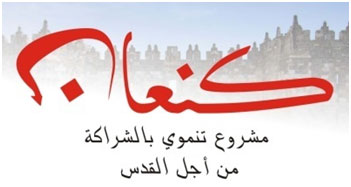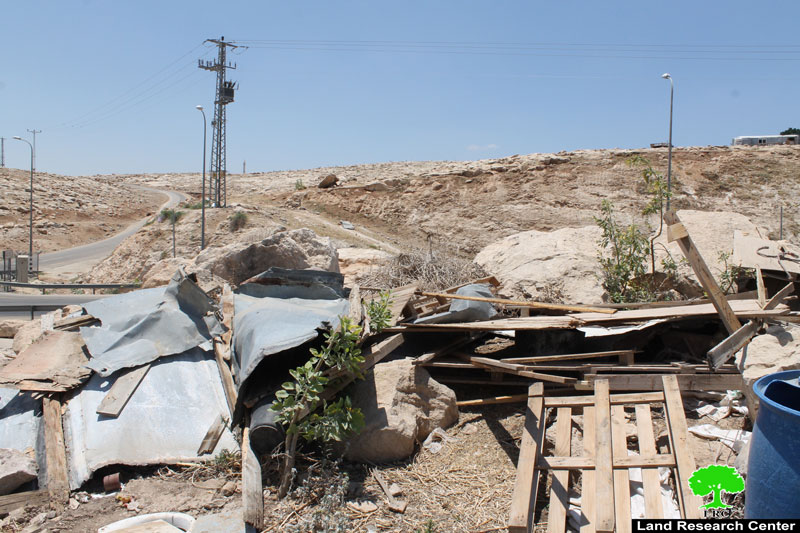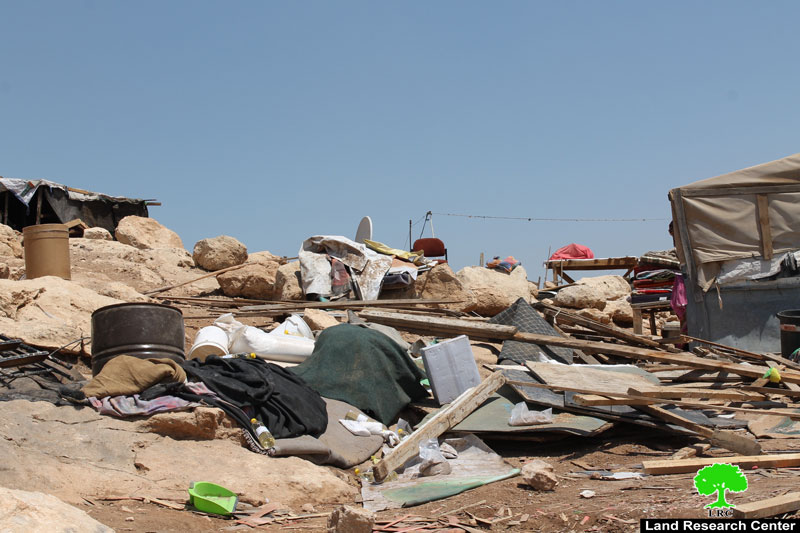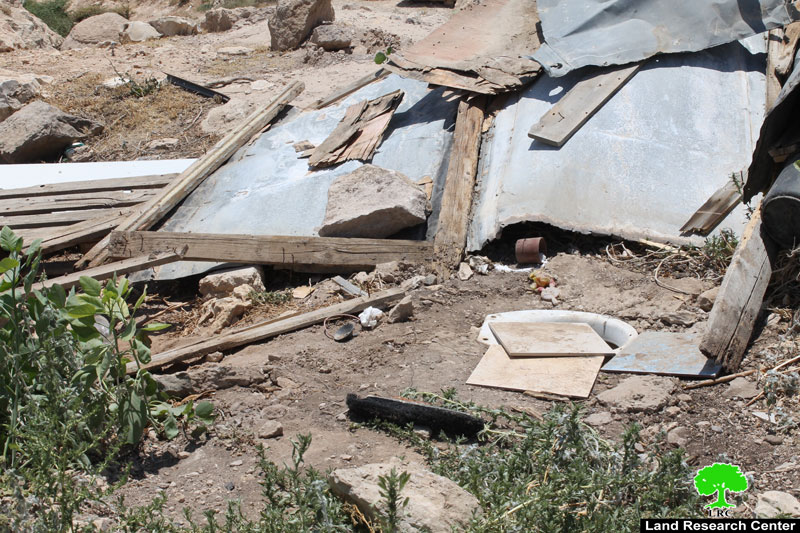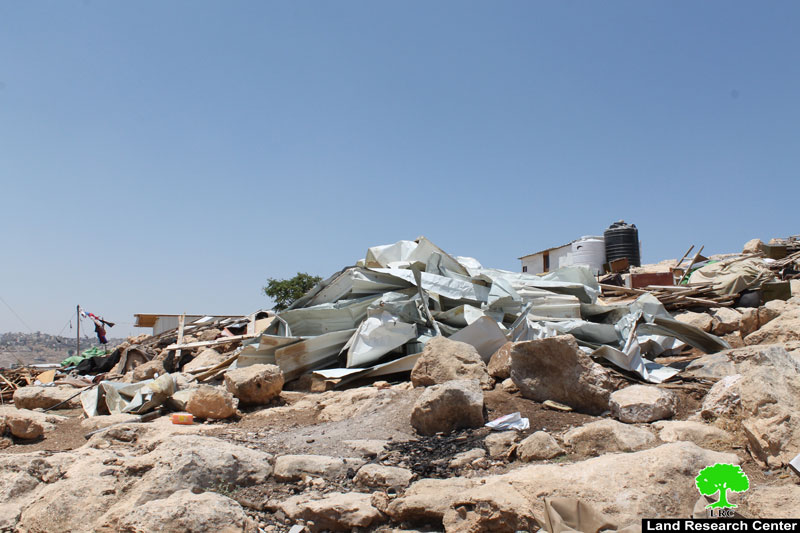2018-07-04
Demolition In Abu Nuwar Bedouin community / Jerusalem
Wednesday , 4 July 2018m The occupation forces carried out a brutal demolition assault against Abu Nuwar Bedouin community in Abu Dis, many residents and barns were demolished without receiving a demolishing notice. Citizens in Abu Nuwar say that they received a decree from the Israeli supreme court states that there won't be any demolishing assaults in Abu Nuwar Bedouin community . And if the civil administration passed an order of demolition they should notice the residents 30 days earlier. This is the first time the occupation demolishes residents in Abu Nuwar, knowing that some of them were built 25 years ago.
|
|
Remains of houses and barns in Abu Nuwar after the demolition
Names of citizens whose homes were demolished:
# | Name | Family members No | Children No Under 18 | Total space M2 | Date of construction |
1 | Hassan Mohammad Hassan Jahaleen | 7 | 5 | 84 | 1993 |
2 | Abed Mohammad Hassan Jahaleen | 6 | 4 | 35 | 2000 |
3 | Imad Mohammad Hassan Jahaleen | 6 | 4 | 72 | 2010 |
4 | Atallah Yunis Saleh Hamadeen | 4 | 2 | 48 | 2014 |
5 | Harbi Dawoud Saleh Hamadeen | 3 | 1 | 100 | 2012 |
6 | Ahmad Dawoud Saleh Hamadeen | 5 | 3 | 70 | 2012 |
7 | Suliman Ibraheem Salama Hama | 7 | 5 | 80 | 2012 |
8 | Musa Suliman Erhel Frihat Jahaleen | 9 | 7 | 64 | 2004 |
9 | Yusif Mohammad Khamees Jahaleen | 5 | 3 | 56 | 2008 |
It is worth mentioning that none of them own alternative homes and they all had to stay with their relatives.
Citizens whose barns were demolished:
# | Citizen's name | Total space of the barn m2 | Number of sheep | Construction date |
1 | Sulaiman Erheel Fraihat Jahaleen | 30 | 40 | 2010 |
2 | Ahmad Suliman Erheel Fraihat Jahaleen | 50 | 50 | 2010 |
3 | Ibraheem Erheel Fraihat Jahaleen | 55 | 45 | 2011 |
4 | Brothers Hassan and Imad mohammad Hassan Jahaleen | 90 | 120 | 1993 |
Hassan Mohammad Jahaleen told LRC observer:
"Today, early in the morning, We received calls from Khan Al-Ahmar Bedouins telling us that a number of occupation's machines and bulldozers are crowded by the main road , that is a sign that they will start the process of displacing residents of the community , carrying out the occupation's court decree . Bedouins objected many times, but the Israeli court didn't consider their objections. The occupation is conducting colonial plan E1 which will displace all the Palestinian communities in that area in order to build 1500 colonial unit in the location.
People of Abu Nuwar Bedouin community immediately went to Khan Al-Ahmar and stood in front of the bulldozers. While they were there, the occupation forces broke into Abu Nuwar Bedouin community with three bulldozers. Apparently the occupation forces were waiting for Abu Nuwar people to leave to Khan Al-Ahmar to enter their community and carry out the demolition. The occupation closed all the leading roads and prevented citizens from reaching their homes, they got out only few pieces of furniture before they completely destroyed houses and barns , the demolishing process continued for many hours, 9 homes were demolished and 3 sheep barns."
Cars of the civil Israeli administration enter the community frequently and take pictures of houses, barns and everything that appears , Unmanned aerial vehicles known as a (drone) take aerial images for the community . This happens frequently around the week, the community is always watched especially that it is close to "Maale adoumim" and "Kedar" settlements and a border guards police station.
These harassments cause anxiety for inhabitants and fear for children. What is happening in Khan Al-Ahmar bespeaks that the occupation is working on displacing residents and demolishing Bedouin communities, and that the Israeli colonial projects didn't stop, The Nakba is not over yet.
International Conventions and agreements pertaining to house and residents demolition:
The Universal Declaration of Human Rights:
Article 17: " (1) Everyone has the right to own property alone as well as in association with others.
(2) No one shall be arbitrarily deprived of his property."
The 1907 the Hague Convention
Article 23: " In addition to the prohibitions provided by special Conventions, it is especially forbidden to destroy or seize the enemy's property, unless such destruction or seizure be imperatively demanded by the necessities of war."
The Geneva Fourth convention
Article 53: " Any destruction by the Occupying Power of real or personal property belonging individually or collectively to private persons, or to the State, or to other public authorities, or to social or cooperative organizations, is prohibited, except where such destruction is rendered absolutely necessary by military operations."
The International Covenant on Economic, Social and Cultural Rights:
Article 11.1 states: "The States Parties to the present Covenant recognize the right of everyone to an adequate standard of living for himself and his family, including adequate food, clothing and housing, and to the continuous improvement of living conditions. The States Parties will take appropriate steps to ensure the realization of this right, recognizing to this effect the essential importance of international co-operation based on free consent".
The International Covenant on Civil and Political Rights:
Article 1 states: "1. All peoples have the right of self-determination. By virtue of that right they freely determine their political status and freely pursue their economic, social and cultural development.
2. All peoples may, for their own ends, freely dispose of their natural wealth and resources without prejudice to any obligations arising out of international economic co-operation, based upon the principle of mutual benefit, and international law. In no case may a people be deprived of its own means of subsistence.
3. The States Parties to the present Covenant, including those having responsibility for the administration of Non-Self-Governing and Trust Territories, shall promote the realization of the right of self-determination, and shall respect that right, in conformity with the provisions of the Charter of the United Nations."
This case study is part of Kan'aan Project
